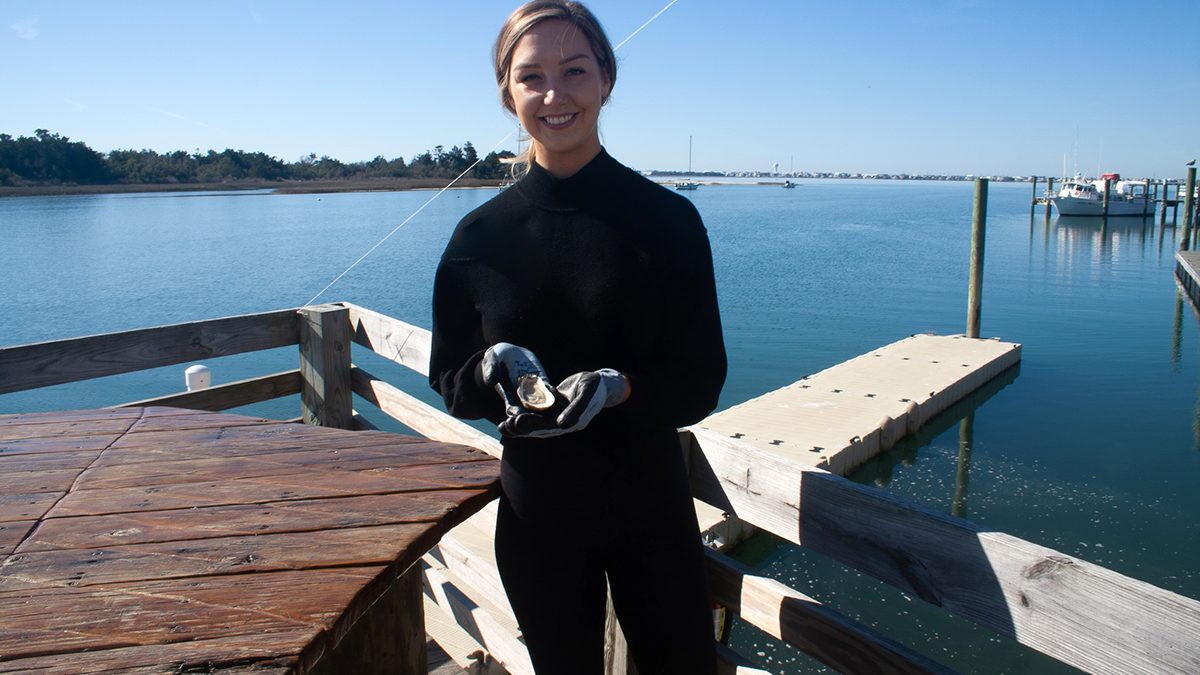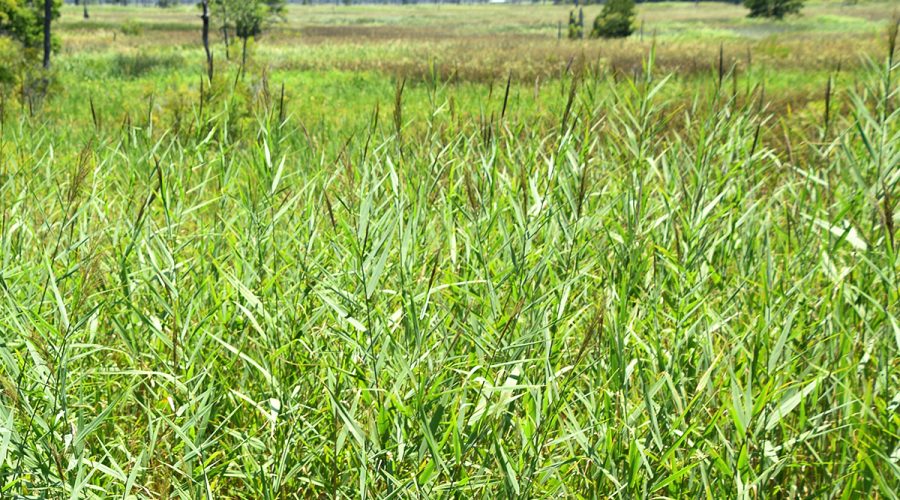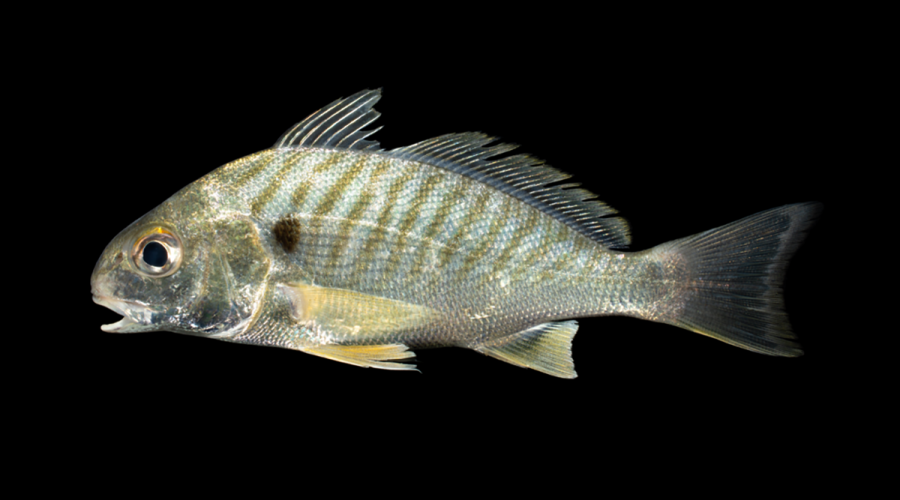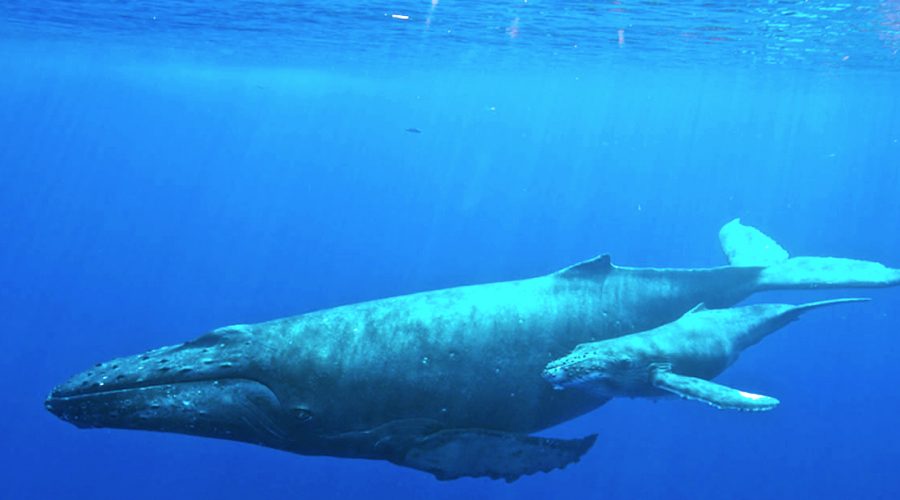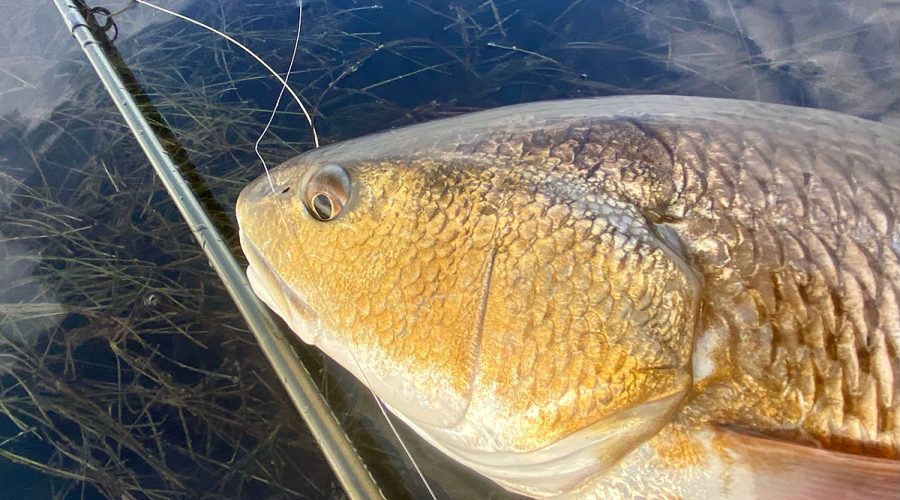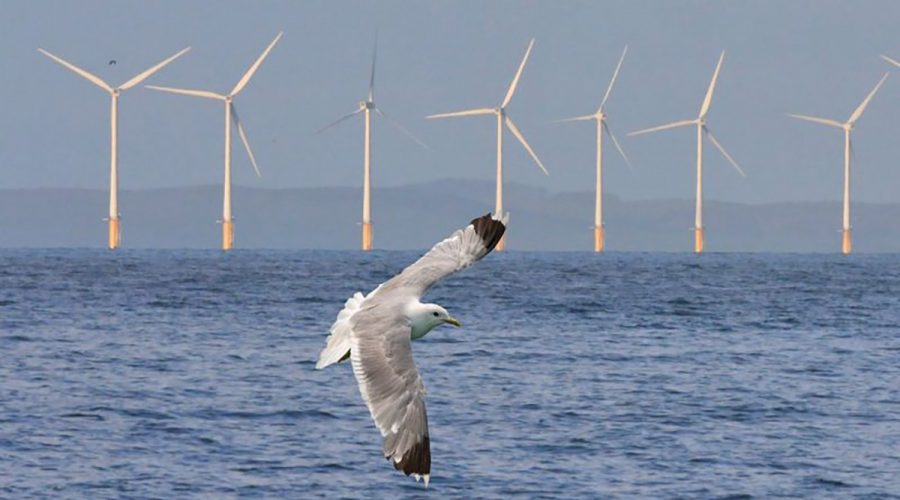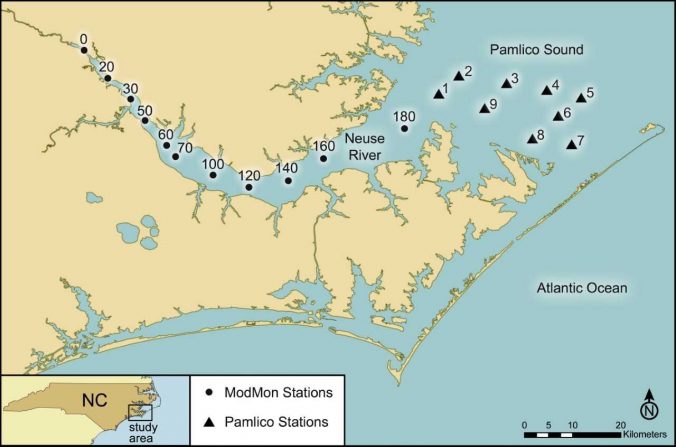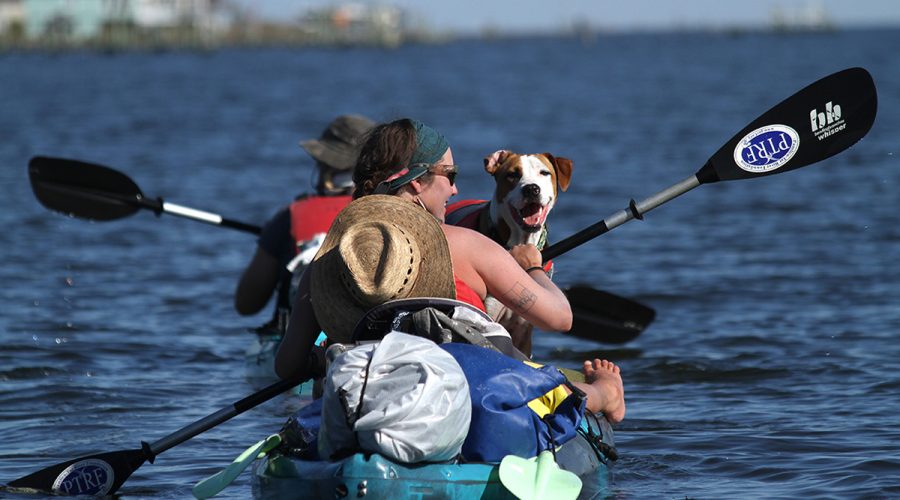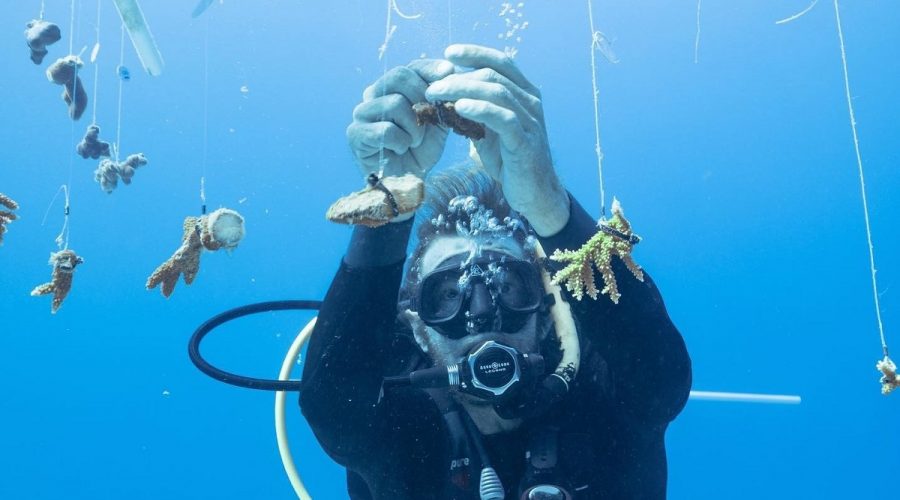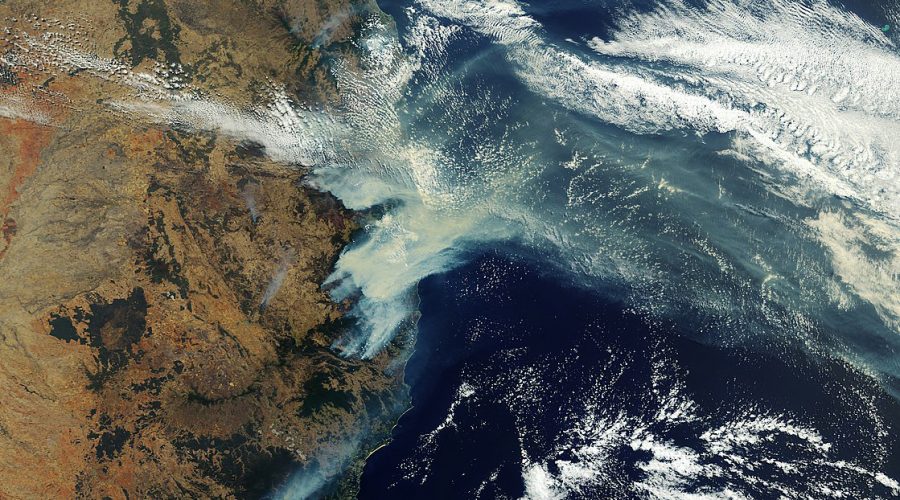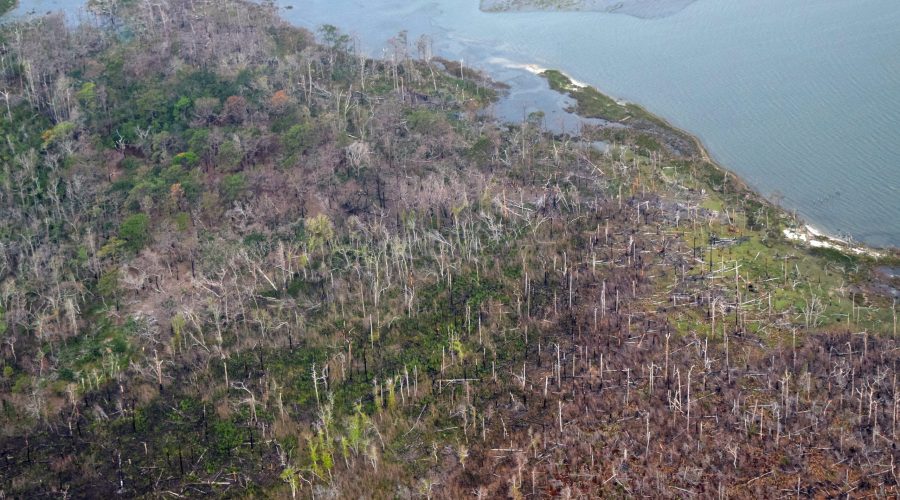Aquaculture has the potential to help the world adapt to a changing climate, but warming ocean temperatures, storms and landscape changes could force the industry to adapt as well.
New technique using coral helps reconstruct past climates
UNC Chapel Hill doctoral candidate Hunter Hughes has developed a new technique, inspired by seismology, to reconstruct past climates using corals.
Nonnative phragmites may help with climate resilience
For years, discussions about the invasive reed focused on eradication, but recent research finds the plant can help protect against erosion and sequester carbon.
Declining, fluctuating spot numbers spur action, research
Commercial harvests of spot have been on the decline for more than 20 years and recreational numbers fluctuate, but a multistate management approach and independent research aim for sustainable stocks.
Whales eat much more than previously thought: Study
A recent study found that baleen whales can consume 5 to 30% of its body mass on a daily basis, illustrating the large impact they have on the marine food web.
‘A Sound River’ documentary traces nonprofit’s 40 years
Filmmaker Rain Bennett, who grew up on the Pamlico River and produced the history of environmental nonprofit Sound Rivers, says storytelling is a powerful way to stand up to polluters.
Winds, temperatures can affect varying red drum numbers
A new UNCW study looks at how wind, water temperature and food source can affect juvenile red drum in nearshore areas.
Duke to study offshore wind energy’s effects on marine life
With a recently announced $7.5 million federal grant, Duke University is leading a research project to better understand how offshore wind development can affect marine species.
Lingering dry weather slows flow in Neuse River
Low-flow conditions, which indicate long stretches of dry weather, can help facilitate the development of freshwater algal blooms.
Paddlers’ trip highlights issues, beauty along the Pamlico
Sound Rivers’ Environmental Projects Coordinator Clay Barber and Pamlico-Tar Riverkeeper Jill Howell recently spent five days paddling the Pamlico River and its estuaries with Miller the pup on a mission to document environmental conditions.
UNCW alumnus among global environmental prize winners
UNCW alumnus Joe Oliver and his colleagues at Bahamas-based Coral Vita have been globally recognized with an environmental award for their work restoring coral reefs.
High bacteria levels force officials to cancel triathlon swim
YMCA Wrightsville Beach Sprint Triathlon organizers canceled the swim portion of the Sept. 25 race after state officials detected high levels of bacteria in Banks Channel.
Australian wildfires fertilized expansive algal blooms: Study
A recently published study by Duke University researchers found that particles in smoke and ash from Australian wildfires fed unprecedented algal blooms far away in the ocean.
Montreal Protocol prevented carbon sink losses: study
The Montreal Protocol, signed in 1987, has not only helped protect Earth from ozone loss related to chlorofluorocarbons, researchers have found that it also prevented a significant loss of sequestered carbon.
NC at a crossroads in dealing with water quality challenges
As North Carolina’s population continues to grow, algal blooms and other signs of human-caused nutrient pollution in rivers and estuaries stand to worsen.
LiDAR data can inform planning for sea level rise: Study
A recent study is the first worldwide elevation model using satellite Light Detection and Ranging, or LiDAR, data to evaluate what parts of the world are most vulnerable to sea level rise.

